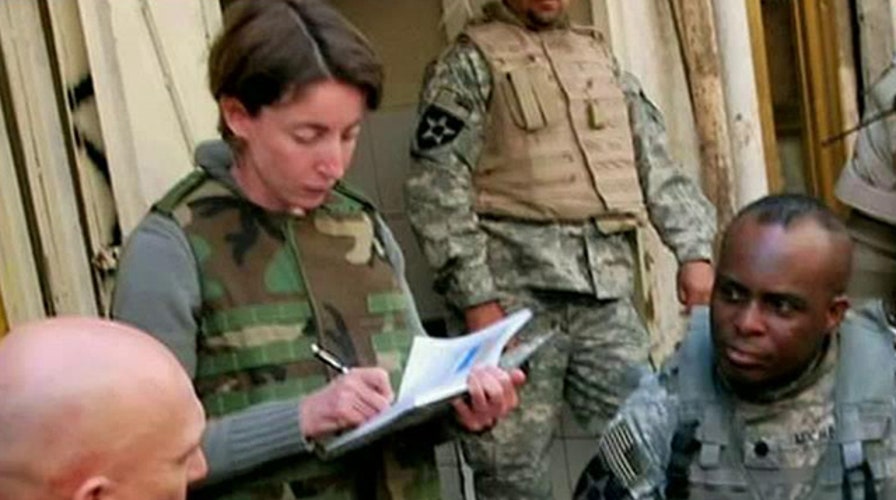Former US military adviser offers insight into ISIS
Did Obama administration pave the way for ISIS’ invasion in Iraq?
Cameraman Pierre and I first met Emma Sky when we were profiling Gen. Ray Odierno in 2009, then a commander general of U.S. troops in Iraq. It was not hard to miss the hulking Odierno. It was also not hard to notice the diminutive Sky. She was always at the general's side, introducing him to people and explaining situations as we toured the Iraqi city of Kirkuk.
With a background in civil affairs, the British intellectual had come to Iraq in 2003 to help administer the country with the Coalition Provisional Authority. Military commanders, including Odierno, quickly realized she was an indispensable political adviser. She was a source not only of in-depth cultural information about Iraq, but also a non-whitewashed view of what the U.S. should be doing.
We conducted the accompanying extended interview with her in a space just off King’s Road in the tony Chelsea area of London, a far cry from the dust and dirt and adobe-style houses of much of the Iraqi landscape where Sky spent years.
But as you’ll hear, her recollections of the time she and the U.S. were in Iraq, and her analysis of why the horror of the terror group ISIS has emerged, are crystal clear. Her appropriately named new book, "The Unraveling," is one of the best and most insightful books I’ve read on the war. And that’s after more than a dozen of my own “tours” of Iraq for Fox News.
A few days after the interview, I mentioned to Sky we were doing something for FoxNews.com and asked if she could contribute her own prescription for dealing with ISIS. As always she gave a thorough response. Here are a few excerpts:
“The U.S. is no longer in Iraq holding the 'center' ground and bringing everyone closer together. And the strongest player today is Iran."
“We can give the Iraqi army lots of equipment and training - but we cannot address the psychology and morale of the force and its willingness to fight."
“ISIS can only really be defeated by the Sunnis in Iraq. And they will only turn against ISIS when they see it cannot win, that there are better alternatives, and that they are supported by the Iraqi government and the U.S."
“(Iraqi Prime Minister) Haider Abadi seems to have the will to get Sunnis on board, but he does not have the capacity."
“I think the U.S. should focus efforts on bringing Iran, Turkey and Saudi Arabia together to hammer out an agreement on how to deal with ISIS and what a post-ISIS Iraq should look like.”
Now teaching Mideast politics at Yale, I asked her if she would go back to Iraq if asked to help deal with ISIS. She said flatly, “No,” adding that "new approaches” are needed to fix things, and that she hopes they’ll be found.

